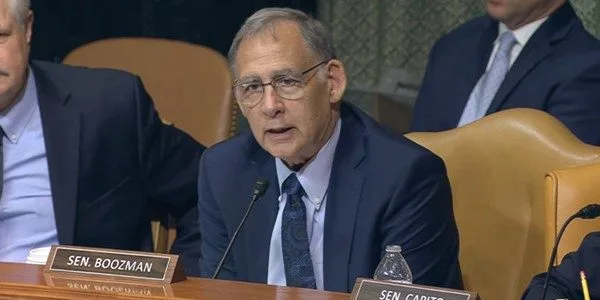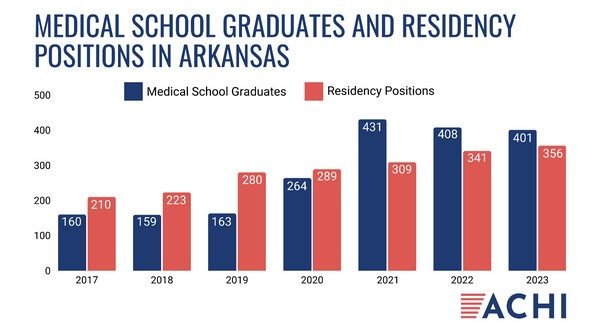
Arkansas’ senior U.S. senator has reintroduced bipartisan legislation with the goal of creating more medical residency slots nationwide and retaining the doctors that train in those positions.
The Resident Physician Shortage Reduction Act would lift the federal limit on the number of Medicare-funded residency slots, raising the total number by 14,000 over seven years. Arkansas would be among the states the bill prioritizes because of its rural areas, new medical schools such as the Alice L. Walton School of Medicine and hospitals that serve areas designated by the U.S. Health Resources & Services Administration as health professional shortage areas, according to a Thursday news release from Republican U.S. Sen. John Boozman.
The number of residency slots in Arkansas increased from 210 to 356 between 2017 and 2023, but the number of Arkansas medical school graduates outpaced the number of in-state residency slots from 2021 to 2023, according to the Arkansas Center for Health Improvement (ACHI).

(Source: Arkansas Center for Health Improvement)
Most doctors continue to practice medicine in the state in which they completed their residencies, according to the American Association of Medical Colleges (AAMC). As of 2021, there are 5.7 active full-time primary care physicians per 10,000 Arkansans, a decrease from 6.0 in 2020, according to ACHI.
“There is an urgent, demonstrated need to strengthen our health care system by combating the alarming shortage of providers, particularly in rural areas,” Boozman, an optometrist from Rogers, said in the news release. “Lifting the outdated cap on residency positions supported by Medicare can expand the supply of physicians while helping ensure access to quality care and treatment in more communities nationwide.”
The AAMC, the National Rural Health Association and the American Medical Association all support the Resident Physician Shortage Reduction Act, according to the news release.
“With the nation facing a persistent physician shortage, this bipartisan bill would enhance and build on the investments academic health systems are making to strengthen the physician workforce by increasing Medicare support for physician training,” AAMC President and CEO David Skorton said in the news release.
The bill’s lead sponsors in addition to Boozman are Senate Minority Leader Chuck Schumer, a New York Democrat; Sen. Raphael Warnock, a Georgia Democrat; and Sen. Susan Collins, a Maine Republican.
Boozman is also sponsoring the Physicians for Underserved Areas Act, which would change the residency distribution process to give areas where a hospital has recently closed a greater chance of receiving new residents, and the Resident Education Deferred Interest Act, which would allow medical and dental school graduates to pause student loan payments and interest accrual during their residencies. He has introduced both bills in previous sessions of Congress.
To view this story, or more news updates from Arkansas Advocate, click here.
WebReadyTM Powered by WireReady® NSI










